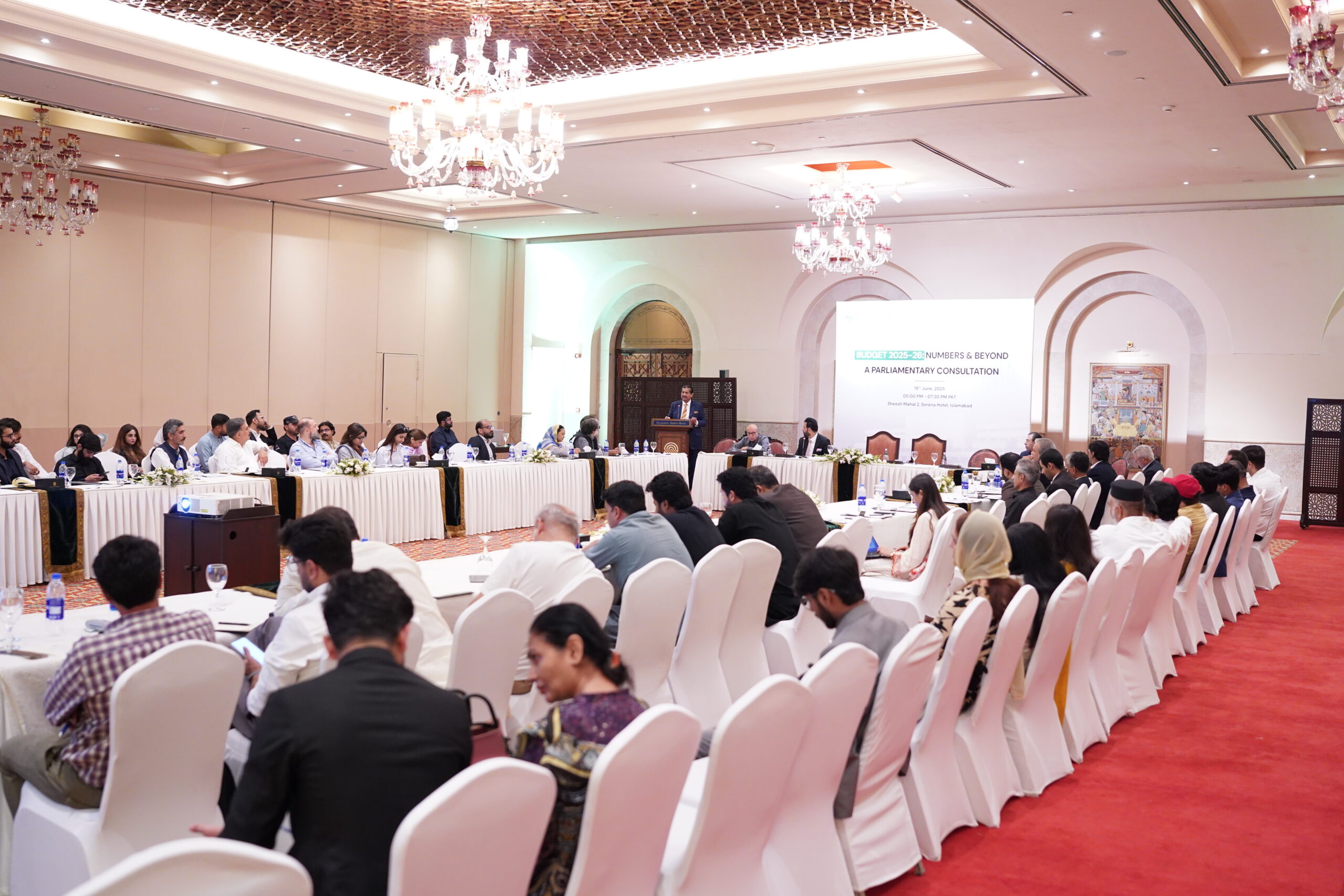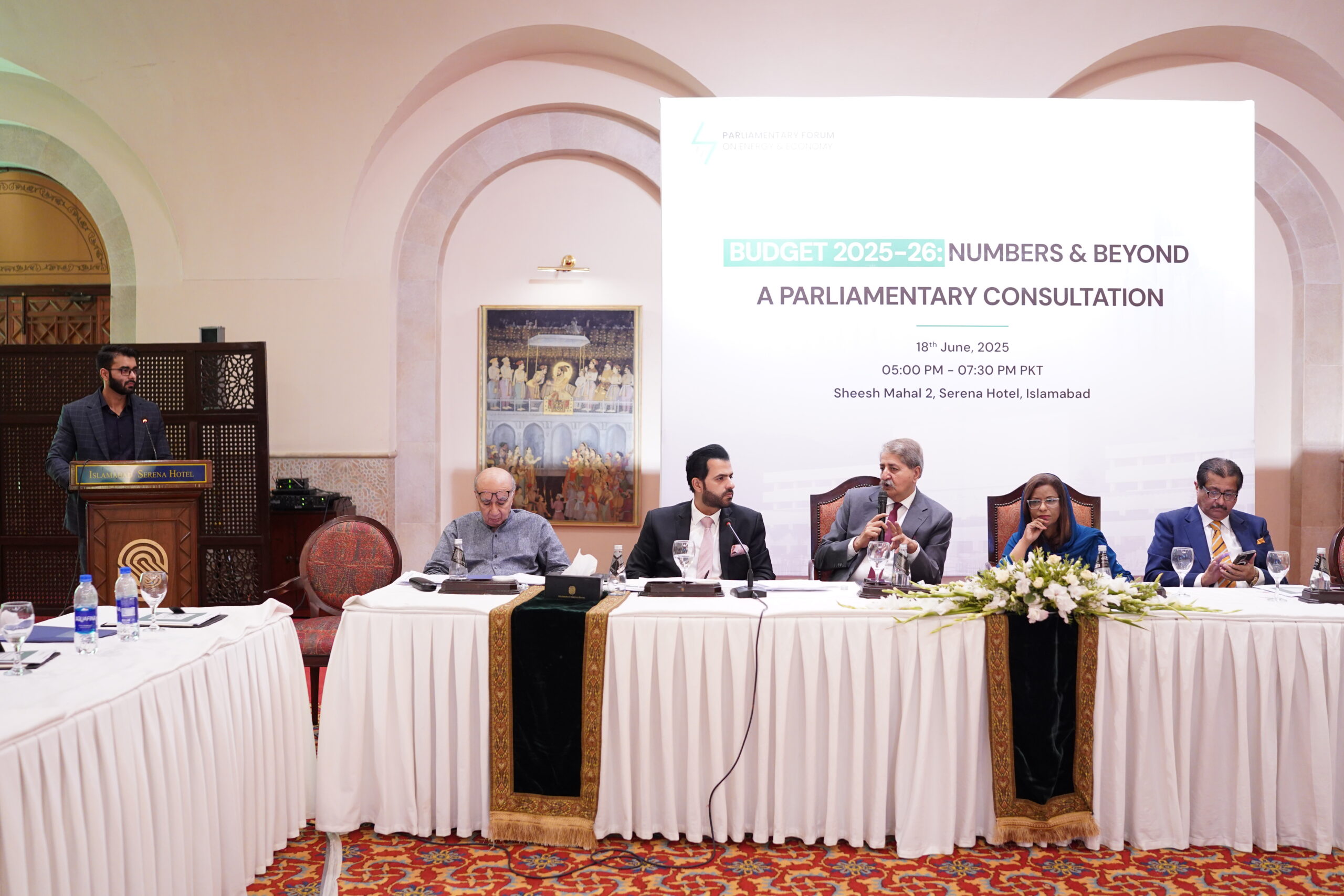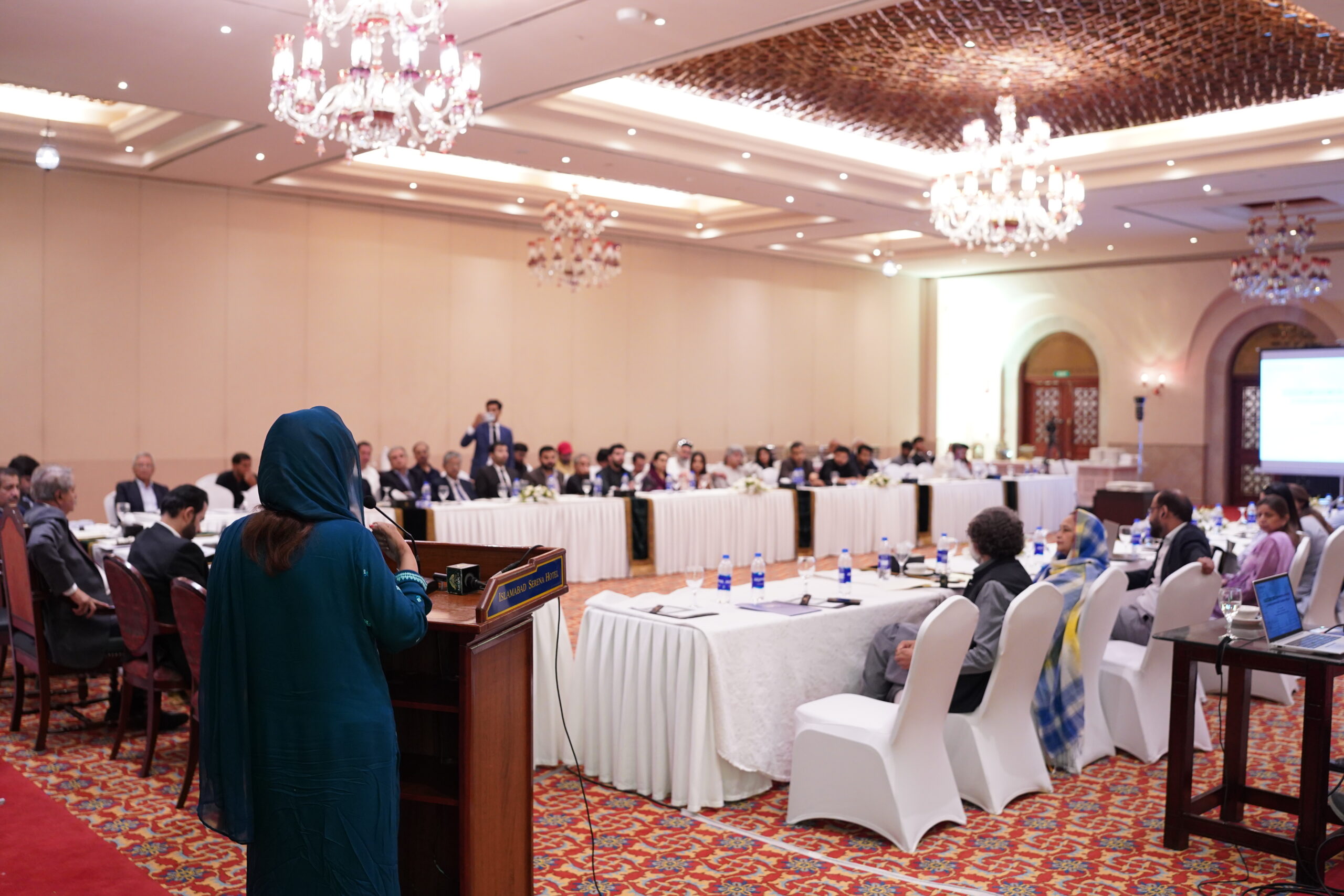Events
Date: 18th June 2025 Budget 2025-26: Numbers and Beyond A Parliamentary Consultation
- Concept Note
- Press Release
- Images
As the federal government has presented its budget for 2025-26, a number of fiscal and financial issues have become salient. Firstly, there is the fact that the budget has been prepared under the supervision and strict scrutiny by the International Monetary Fund (IMF). The budgetary targets for taxation, in particular, have been set strictly in line with the conditionalities of IMF’s ongoing Extended Fund Facility (EFF) loan program. Secondly, the heavy burden of taxation on the traditionally taxed segments of the society, especially the salaried class, has not been changed in this budget which suggests a failure to expand tax net and improve tax recovery from historically under taxed individuals and groups. Thirdly, the government’s allocations for the Public Sector Development Program (PSDP) have been following consistently with provincial governments having been obligated to show provincial surpluses by cutting their own development expenditures. While these cuts have affected social development across Pakistan, these have especially negative impacts on the smaller provinces. Lastly, as stated in the Economic Survey of Pakistan 2024-25, poor growth in agriculture and large-scale manufacturing, high level of unemployment, double digit inflation in recent years and low economic growth have pushed more people below the poverty line than before. The response of the government has been to allocate sizeable sums to social protection but the question remains that should governments focus of social sector spending to reduce poverty or transfer small sums to the growing numbers of the poor as a result of stabilisation project.
This situation demands that the budget is thoroughly and seriously analyzed by the parliament in non- partisan manner so that the parliamentarians can provide their inputs to align it with the needs and rights of people across Pakistan











